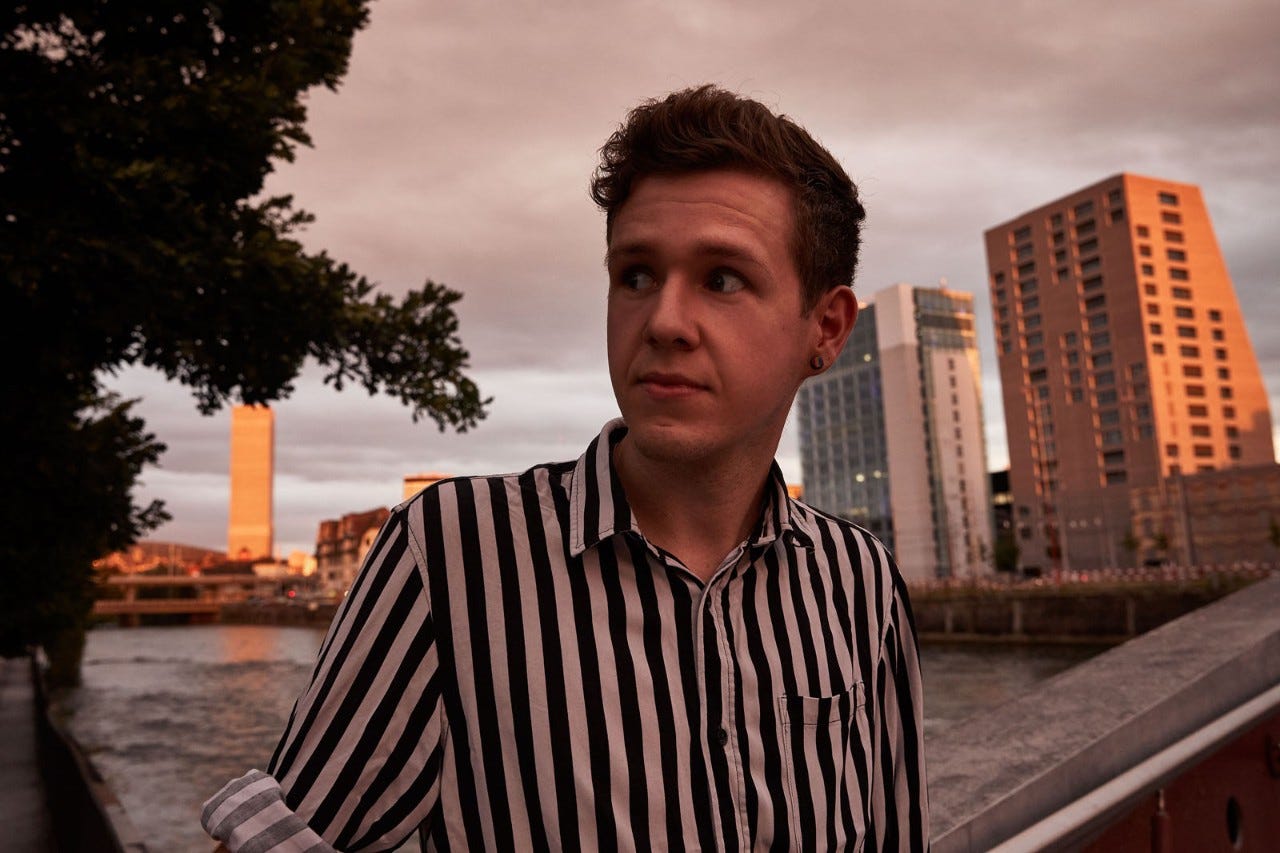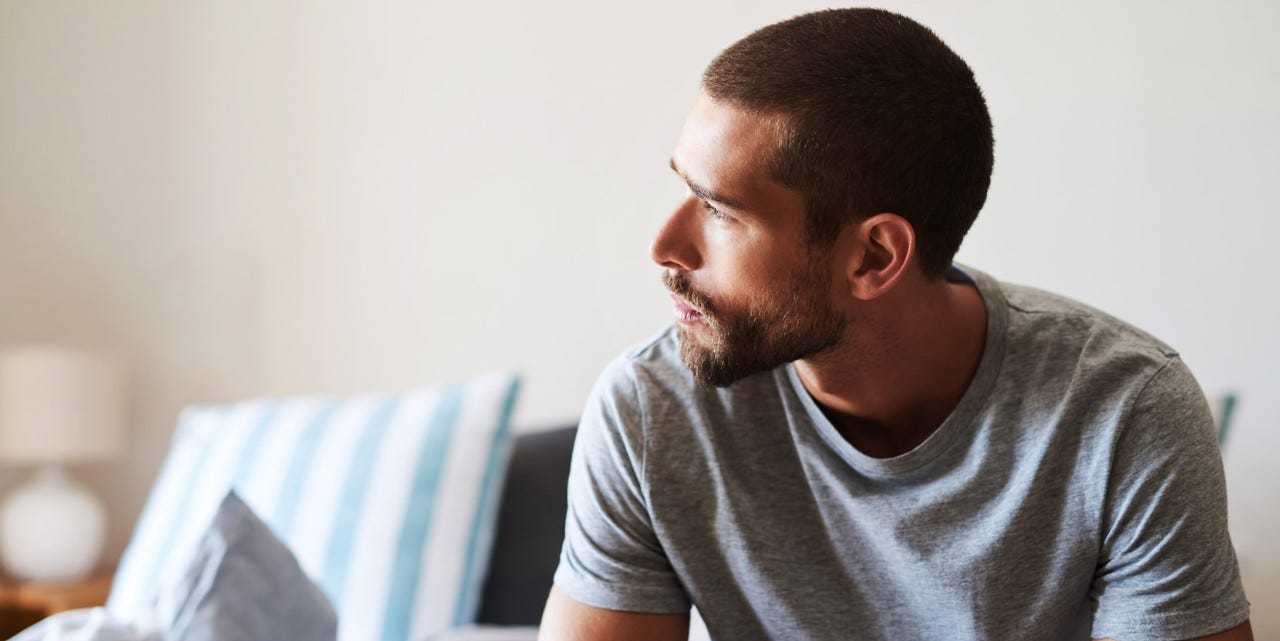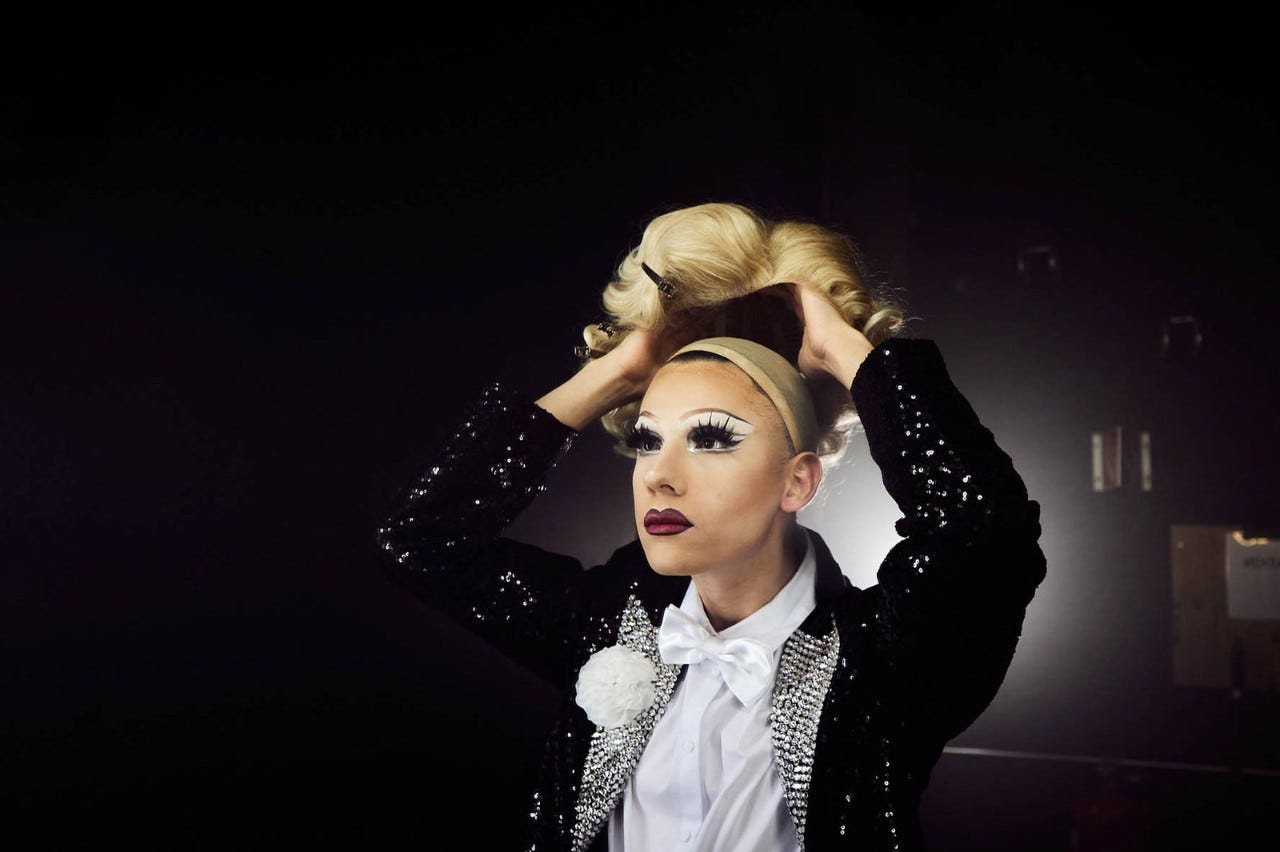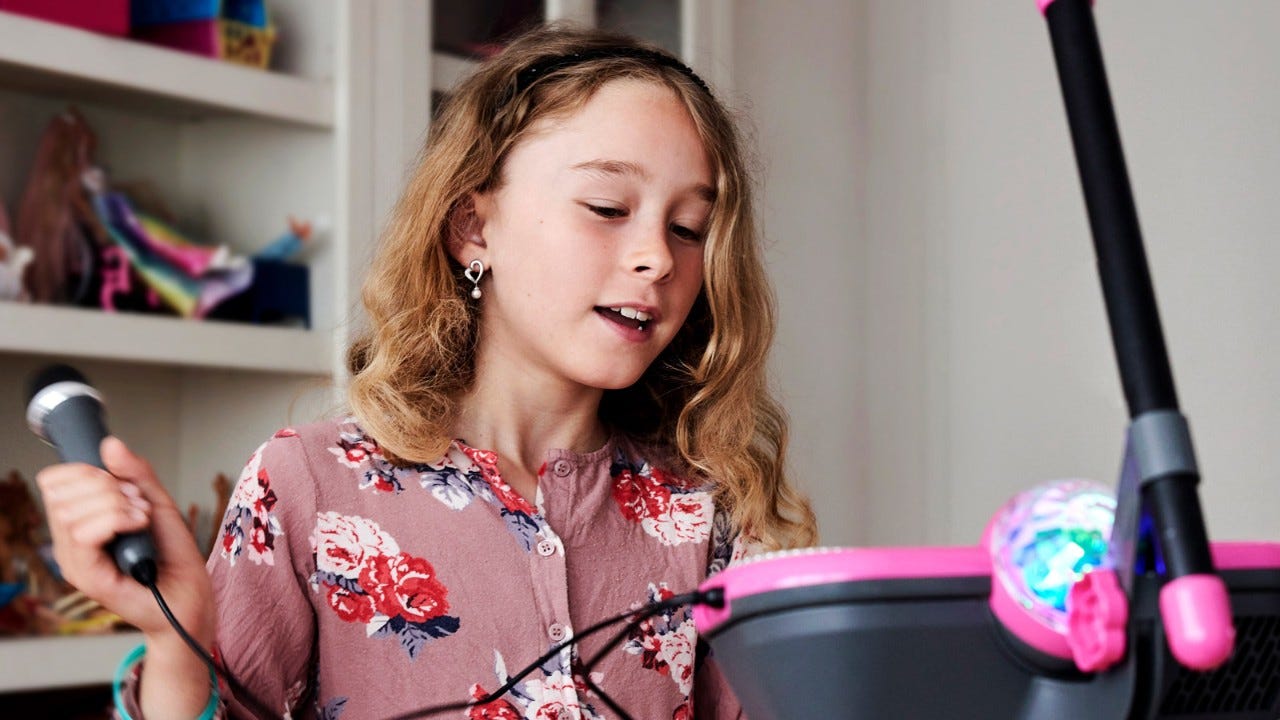“By coming out, I was finally able to live my life as I wanted.”
For people who don’t meet society’s “norms”, showing the world who you really are can be a gruelling experience.

Dominik, when did you notice that you were attracted to boys?
From an early age, when I was about eleven. But I didn’t really want to accept it, and I needed a good five years to come out. I grew up in a very rural area. Homosexuality was taboo and no one really talked about it. I first told myself my feelings were just a phase and that I would grow out of it. I got along with girls fine, but I could only fall in love with boys. As these feelings grew stronger, I started to worry. Why me? What will my friends and family think? I couldn’t stop thinking about questions like these.
You struggled with these questions for five years. What finally prompted you to come out?
There wasn’t a particular trigger. But when you’ve been carrying a secret around with you for so long, at some point the pressure just gets too much to handle. And at 16, I was slowly wanting to get to know other gay men without having to lead a double life. My mum was the first person I told. I wrote her a letter and put it in her make-up drawer. I was totally overwhelmed and couldn’t have said it to her face. After quite a long time – I still don’t know whether she needed the time for herself or only found the letter later – she asked me about it.
“Many people say they’ve got nothing against people being gay. But how is it when your son is homosexual?”
How did she react?
Positively. I didn’t really expect anything else to be honest, but I still found it really hard. That moment when you say it out loud and it suddenly becomes reality: then it’s out, and you can’t take it back. And there’s always an uncertainty: many people say they’ve got nothing against people being gay. But how is it when your son is homosexual? And then there are the inhibitions about love and sexuality you have as a teenager anyway. As a gay teenager, you have to talk to your parents about it at some stage. You can’t simply turn up at home with a partner without getting funny looks. But it’s not easy to stand there and say: Hey mum and dad, I’m gay.
When did your dad find out?
I was eating with my family. My brother and I were texting under the table about who we fancied. When I wrote a boy’s name, he was shocked, but only for a minute. And then I immediately told my dad. He needed a bit of space for a few days, because he was overwhelmed by the news. But he soon came round.
What’s the most difficult thing about coming out?
For me, it was accepting myself. It helped me a lot to talk to other queer people and to realize that I'm not alone in this and that I don't have to be ashamed of it. On the contrary: it's completely normal - and beautiful! There are so many amazing and open people who’ve been through the same thing. I was lucky, because my friends and family took it well. Not all people are so fortunate. Many people live in fear of being rejected or beaten up when they come out (see box below). Or they’re teased and bullied.
“People around me have become more sensitive.”
How did you feel after coming out? Did you encounter any hurtful comments?
More than anything I was very relieved. People around me have become more sensitive. When I was 15, I was hurt when my father made homophobic jokes. Time and again, friends or acquaintances would make homophobic remarks without even thinking about it. That changed when I came out. I also found gay friends. I was able to meet them and openly acknowledge these friendships. And suddenly I could talk about boys with my female friends, and that was cool. Of course, there was gossip and one religious friend didn’t want to see me any more. But by coming out, I was finally able to live my life as I wanted. That’s really precious.
Does it get easier over time to come out?
Definitely. The more often you tell people, the easier it gets. I didn’t really have any problems in school. I handled my coming out there relatively self-confidently, so bullies didn’t really have a chance to make fun of me. By the way, you don’t only come out once: it’s something you have to do all your life, for example whenever you meet someone or start a new job. It’s always a topic.
“Don’t put pressure on yourself. Wait for the right moment.”
Do you have any tips for anyone who wants to come out?
Most importantly: don’t put yourself under pressure. Wait for the right moment. You don’t need to come out to everyone right away. You can do so, for example, by giving a presentation on the topic at school. But I would advise you to start with people you trust. It helps if you have someone who always stands by you. By the way: you don't owe anyone anything. If you prefer to come out by text message – then do it. It’s fine. Once you’ve come out for the first time and had a positive experience, it gets easier and easier. The more casually you raise the subject with colleagues, the less of a problem it is for the other person. And then: Get to know people from the community and exchange ideas!
Where to find information, advice and protection
- The du-bist-du.ch site provides anonymous and free advice for all LGBT+ issues. For example, on the subject of coming out.
- The Schlupfhuus shelter in Zuich offers immediate and safe temporary accommodation. Its services are available to young people from other cantons, too. The Schlupfhuus hotline is open 24/7 on 043 268 22 66. If Zurich is too far away, they’ll search for other accommodation for you.
- The LGBT+ helpline provides help and advice if you suffer homophobic or transphobic abuse.
- Risk of suicide: In urgent cases, professional counsellors are available to talk or offer support in crisis situations at any time under the number 147. The support is anonymous and free of charge.


